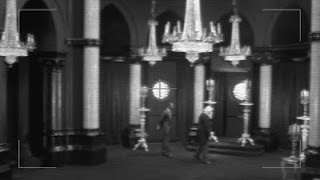 There is an interesting pattern to the names in Shakespeare's Hamlet, that we have given (more-than the intended?) meaning in Hamlet: Reframed. Four characters are given names in Saxo Grammaticus' original Life of Amleth. They survived with minor variation for four centuries. Shakespeare changed the original names, gave names to minor characters, and added others; or they could have been introduced in the now-lost version known as the Ur-Hamlet, a play written about 10 years before Shakespeare's rendition.
There is an interesting pattern to the names in Shakespeare's Hamlet, that we have given (more-than the intended?) meaning in Hamlet: Reframed. Four characters are given names in Saxo Grammaticus' original Life of Amleth. They survived with minor variation for four centuries. Shakespeare changed the original names, gave names to minor characters, and added others; or they could have been introduced in the now-lost version known as the Ur-Hamlet, a play written about 10 years before Shakespeare's rendition.Name change
Here is a table showing some of the names in their Shakespearean and Saxo Grammatical forms:
| William Shakespeare | Saxo Grammaticus |
| Hamlet, Prince of Denmark | Amleth, Prince of Denmark |
| Hamlet's father | Horwendil |
| Gertrude | Gurutha |
| King Claudius | Feng |
| Ophelia | An unnamed "fair woman" |
| Polonius | An unnamed eavesdropper |
| Rosencrantz and Guildenstern | Two unnamed retainers of Feng |
| Hamlet (Sam Rabinovitz) and Gertrude (Sara Bickler) keep as they are |
Barely touching Hamlet's and Gertrude's original names, Shakespeare changed “Feng” (or Fengo, Fengon, etc.) to “Claudius!” At first, this odd translation seems somewhat random. Sure, “Claudius” is a much better name for a king than “Feng.” But why not change everything? Why not modify “Hamlet” and “Gertrude,” too? This is my speculative answer: the story of Hamlet was known to the Elizabethans. While the Saxo Grammaticus's Latin text might not have been wide-read, a 1570s French version by Francois de Belleforest called The Hystorie of Hamblet (in its 1608 English translation) would have been available to the Elizabethans and their playwrights, and the Ur-Hamlet may have provided enough publicity for Shakespeare to keep the title character the same. (A play called King Leir came out in 1594. Shakespeare's much better King Lear was written around 1605. Chances are he did a similar reconstruction of Ur-Hamlet.)
The fact is, Shakespeare (or his Elizabethan predecessor) gave the king a Roman name, and left the queen and prince with Danish names. In Hamlet: Reframed, we have used this to inform the regime change. Characters with Latin names (Claudius, Polonius, Cornelius) or Greek (Laertes, Ophelia) represent the new order. The Danish names (Hamlet, Gertrude, Voltimand, Osric) are the old guard. We liken the shift to the post-9/11 change in the US. Different rules, different players. This means that Cornelius is an up-and-comer in Claudius' regime, compared to the more established Voltimand and Osric, who came in under Hamlet Sr's reign. Voltimand could certainly have carried the diplomatic message to Norway alone, but Claudius sends Cornelius, too. He addresses them:
Maybe Shakespeare just needed an extra syllable to make the verse work. Maybe he's telling us something.
It is also worth noting that Rosencrantz and Guildenstern are German names. This separates them both from the “new” Danes and the “old.”
Job descriptions
In updating the Viking revenge tale, Shakespeare infused the his story of Hamlet with Elizabethan politics and international conflict. Since these elements are the primary focus of our reframe, we have chosen to make the politics more accessible to the modern audience. In doing so, the messengers and servants that were somewhat interchangeable in Shakespeare's text now have modern job descriptions.
- Voltimand is civil intelligence, likened to the State Department. Her job entails gathering and distributing non-military information, and dealing with general diplomatic matters.
- Cornelius is military intelligence. She deals with the Norwegian troop movements, as well as reporting on Laertes' riot when it “O'erbears [Claudius'] officers” (IV.v).
 |
| Cornelius (Allison S. Galen) and Voltimand (Pamela H. Leahigh) get ushered out by Polonius (Jay Tilley) |
- Osric is on personal detail for the king. She brings him personal messages, and serves as security detail, as well as refereeing the duel at the end of the play.
| Osric (Liz Dutton) |
By utilizing the variety of names in Hamlet and modernizing the play, we have created a world of Elsinore that is at the same time true to Shakespeare's text and familiar to the modern audience, especially in Washington, DC, where Hamlet: Reframed is being produced.




